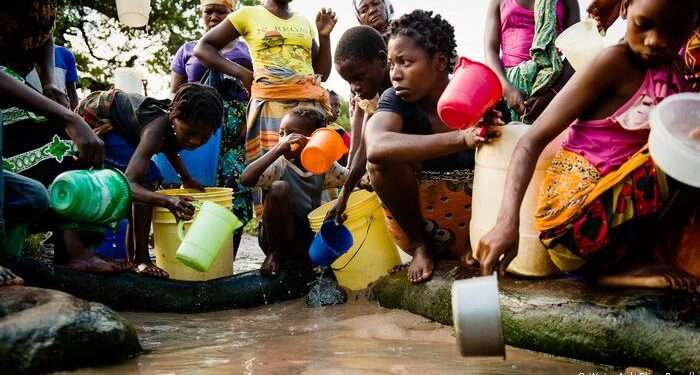Global water targets “increasingly out of reach”, UN says

The United Nations has warned that over two billion people still lack reliable access to safe drinking water, putting global development goals at risk, according to Arab News via AFP on August 26th.
According to a joint study by the World Health Organisation (WHO) and UNICEF, progress has been slow, and the goal of reaching “universal coverage” of safe water, sanitation and hygiene by 2030 “is increasingly out of reach.”
The report found that last year, one in four people worldwide did not have access to safe drinking water.
The study categorises water access into five levels. Safely managed water is considered the highest level, meaning it is available at home whenever needed and is free from harmful contaminants. Below this standard are basic, limited, unimproved and surface water services, with each step down reflecting less secure and more time-consuming access.
Over 100 million individuals still rely on rivers, ponds or canals for daily use, leaving them vulnerable to illness and contamination. UNICEF has warned that heavy rains in Central and West Africa put around 80,000 children at risk of cholera, with outbreaks in countries such as the DRC and Nigeria threatening to spread.
WHO’s head of environment, Ruediger Krech, emphasised that “Water, sanitation and hygiene are not privileges: they are basic human rights.”
Since 2015, nearly one billion people have gained access to the top level of service, raising global coverage from 68 to 74 percent. Yet more than 2.1 billion still fall short of this standard.
Although the use of surface water has declined, it remains a critical issue in parts of Africa, where 28 countries still report that more than a quarter of their population lacks even basic services.
Progress has been stronger in sanitation and hygiene. Over the past decade, 1.2 billion people obtained safely managed sanitation, and open defecation rates dropped significantly.
Some initiatives have been launched to address these issues. This includes Egypt’s push to strengthen its cooperation with Africa nations and coordinate Nile Basin development plans to protect its water security.
Even so, children remain particularly at risk. “When children lack access to safe water, sanitation, and hygiene, their health, education, and futures are put at risk,” said Cecilia Scharp, stressing that girls are disproportionately affected by these inequalities.
Arab News via AFP, Maghrebi.org
Want to chase the pulse of North Africa?
Subscribe to receive our FREE weekly PDF magazine














